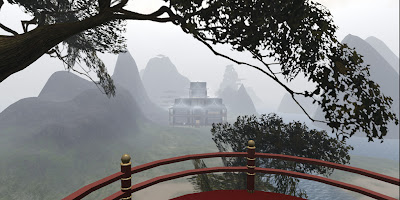How the City Hurts Your Brain from the Boston Globe.
Now, personally, I find cities exhilarating, at least dense metropolitan ones that still have pre-automobile sensibilities about them. I start moving at their pace. Put me in the countryside and I quickly start to find the lack of distractions to be most ... distracting. I guess I'm just weird that way. After all, most of the most creative and intelligent people in the world live off in the middle of nowhere and always have, right?
But the comments in the article about the importance of green space and nature is interesting. Because it is not just some nature that is really important. It is the diversity of that nature that makes a difference. So perhaps the problem is that our brain reads urban settings as a sort of monoculture, like an empty field. This doesn't refute the argument in the article, it just changes it a little. It also allows us to ask how we create urban forms that aren't monocultures.
The other reason I find the need for complexity interesting is the difference between Frederick Law Olmstead and a typical Japanese formal garden. A Japanese formal garden is so complex, so carefully laid out, that it compels your attention at every moment. Suddenly, every little detail becomes cogent and tangible and needing your attention. On the other hand, I have an Olmstead park a few blocks from where I currently live. I cut through it alot, but it doesn't compel me to attend to it. If anything, I am too busy watching for creeps lurking behind trees as I wend through the interesting bits and avoid the intimidating wide open spaces. But the article is right on the point that such natural complexity does help to clear the senses.
Perhaps for truly high level functioning, we need the energy, dynamism, and synergy of the city, of the properly people-oriented city, combined with the ability to step away into the cleansing realm of nature to bring those energy levels back down. So how do we do a better job of building spaces like that?
































